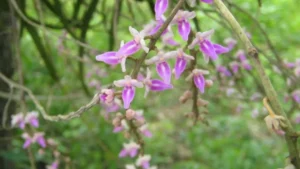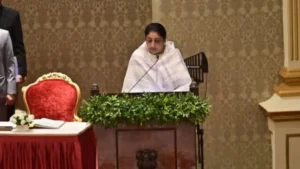The Ganga Sagar Mela stands as a testament to the vibrant cultural and spiritual tapestry of India. Held annually in Sagardwip, West Bengal, this magnificent fair has earned the distinction of being the second most popular mela in the country, surpassed only by the revered Kumbh Mela. The festival draws a massive influx of devotees who converge to partake in rituals, seek spiritual purification, and celebrate with immense fervor.
Cultural and Spiritual Significance
Held during the winter season, the Ganga Sagar Mela is a sacred gathering where pilgrims immerse themselves in the holy waters of the Ganga River to cleanse their souls. The Ganga, considered the holiest river in Hindu mythology, culminates its journey in Sagardwip, merging with the Bay of Bengal. Legend has it that a dip in these sacred waters absolves one of all sins, making it a pilgrimage of immense significance.
Rituals, Lights, and Chants
The Mela witnesses a plethora of rituals, illuminated lamps, and rhythmic chants that envelop Sagardwip in a divine aura. Pilgrims from diverse backgrounds, races, cultures, and nationalities come together to participate in this grand affair, creating a mosaic of spiritual unity. The culmination of the festival is marked by devotees worshiping Lord Surya, the Sun God, after their purifying dip.
The Temple of Kapil Muni
Post the sacred bath, pilgrims often visit the temple of Kapil Muni, a revered sage in Hindu mythology. The temple adds another layer of spiritual significance to the Mela, offering a space for reflection and reverence.
Makar Sankranti Celebration
The Ganga Sagar Mela aligns with the celebration of Makar Sankranti, observed on either the 14th or 15th of January each year. This auspicious day adds to the festive atmosphere, amplifying the cultural and religious importance of the gathering.
Sagardwip: A Haven of Beauty and Spirituality
Situated just off the Bengal coast, Sagardwip is an island of exceptional beauty and religious significance. The confluence of the Ganga River and the Bay of Bengal imparts a unique spiritual charm to this location. Beyond the religious fervor, Sagardwip offers stunning beaches, making it a retreat for rejuvenation and a paradise for trekkers.
Naga Sadhus and Rituals
Among the multitude attending the fair, the Naga Sadhus stand out, their bodies smeared with ash as they engage in yoga and rituals at their camps. These rituals become a captivating spectacle, drawing the attention of many devotees.
A Mesmerizing Experience Awaits
To witness the breathtaking sight of lamps illuminating the night sky and to resonate with the chants echoing through the air, a visit to the Ganga Sagar Mela is not just recommended – it’s an invitation to partake in an unforgettable spiritual journey.
Important Questions Related to Exams
1. Which river merges with the Bay of Bengal at Sagardwip during the festival?
A. Ganga
B. Yamuna
C. Brahmaputra
2. When is Makar Sankranti celebrated during the Ganga Sagar Mela?
A. 1st of January
B. 14th or 15th of January
C. 31st of December
3. Who is worshipped by devotees after taking a dip in the holy waters?
A. Lord Shiva
B. Goddess Durga
C. Lord Surya
Kindly share your responses in the comment section.




 New Orchid Species Discovered in Kanthal...
New Orchid Species Discovered in Kanthal...
 Adampur Airport Renamed Sri Guru Ravidas...
Adampur Airport Renamed Sri Guru Ravidas...
 Who Is Sunetra Pawar, Maharashtra’s Firs...
Who Is Sunetra Pawar, Maharashtra’s Firs...








